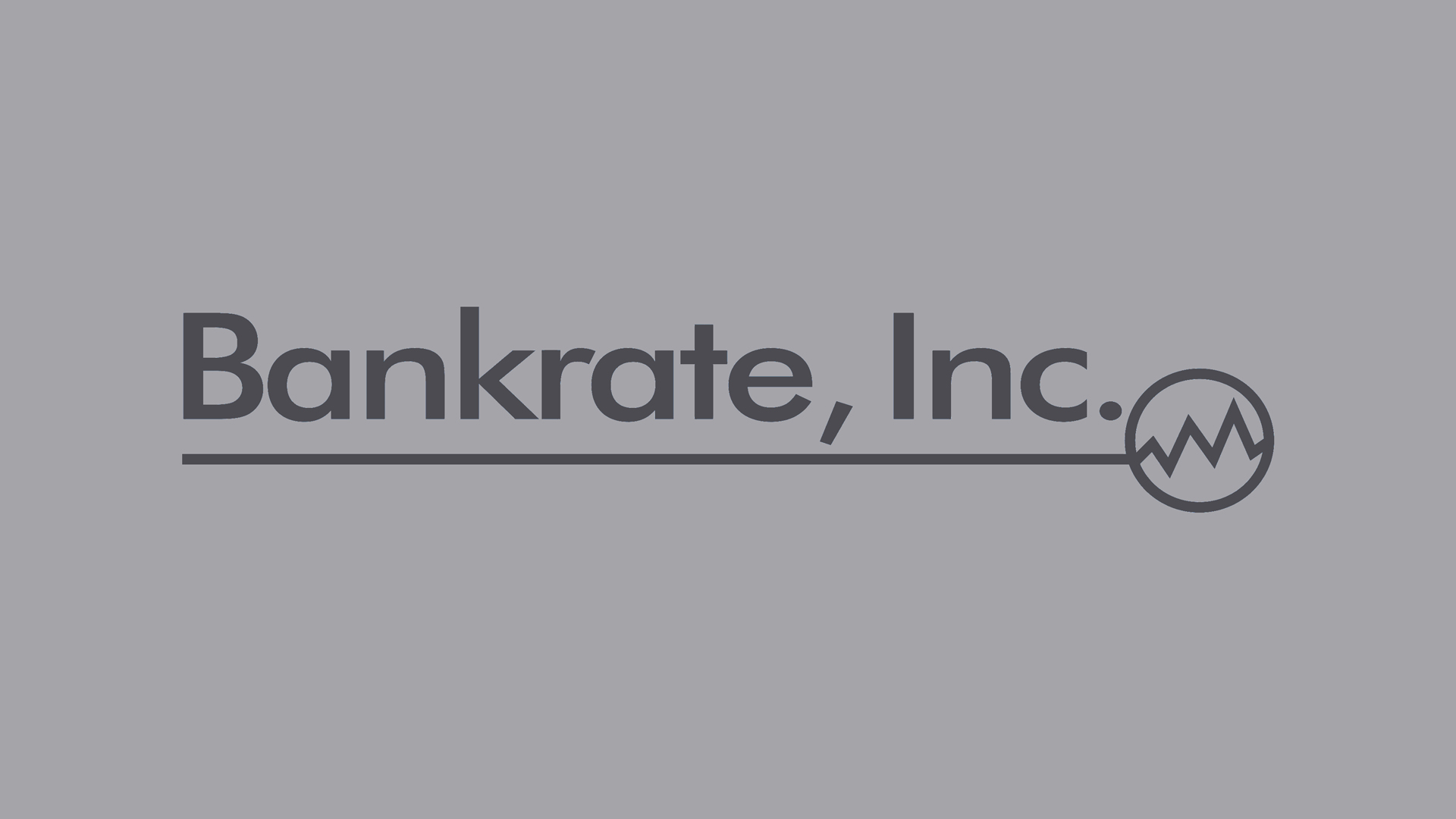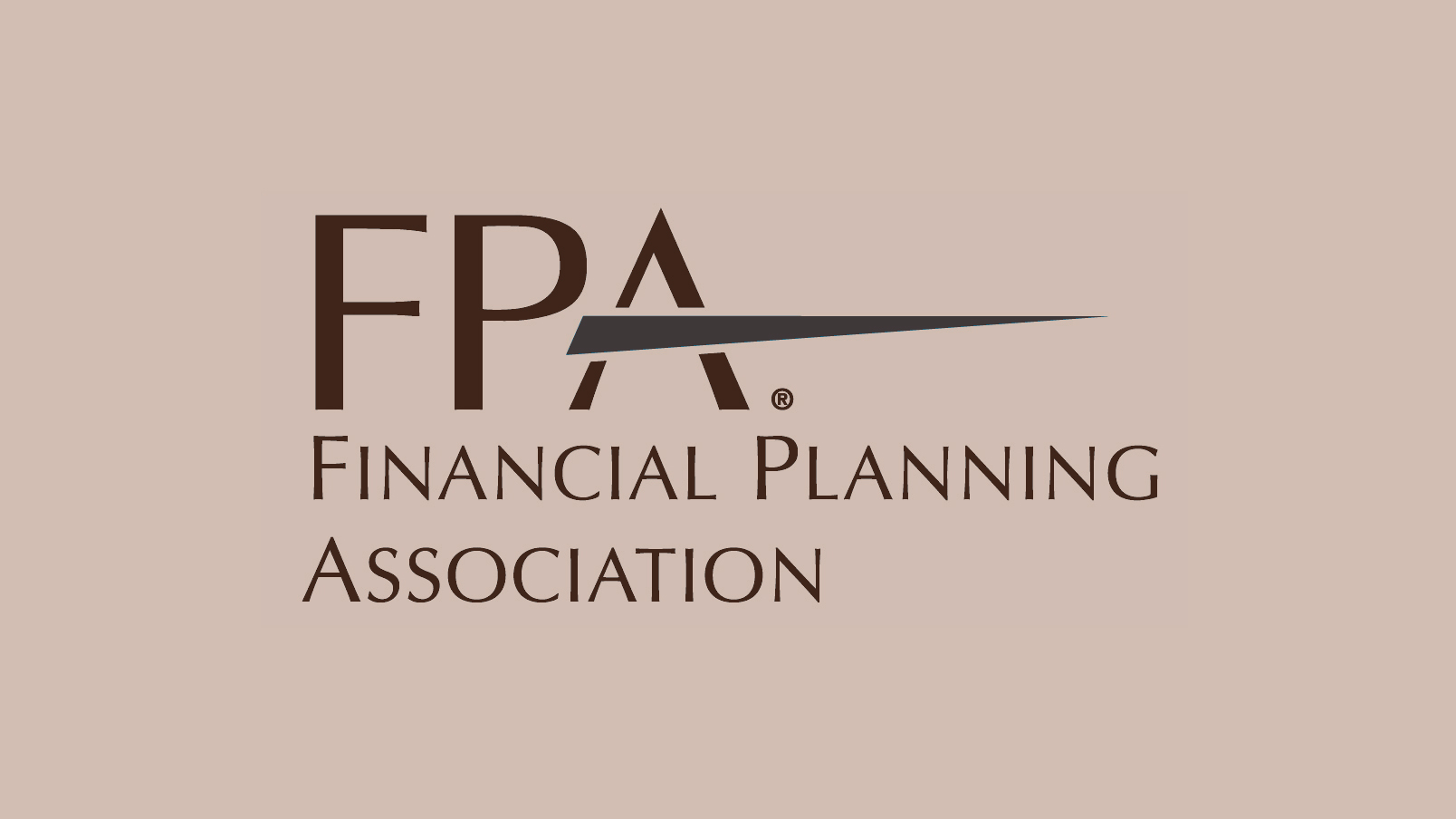Saving money is like eating healthy, sleeping or exercising. All the expert advice tends to boil down to one thing – you should do more of it.
But while working hard is great, working smart is even better. You can save every spare penny you earn, but planning for your financial future isn’t just about being frugal. You need to make sure that money is allocated properly and put to specific use.
Think of it like eating a balanced diet versus living on broccoli, chicken breast, and tap water. Sure, those are very healthy options, but a good diet requires some diversification and a little forethought to prevent vitamin deficiencies. Planning for your financial future takes a similar approach.
Your savings are a powerful tool – are you putting that money to good use?
The wrong place for your emergency fund.
When I ask people where they keep their emergency fund, they often say something like, “Oh, it’s in my regular checking account.”
Wrong. Keeping your emergency fund in your everyday checking account is like keeping a box of cookies on the counter when you’re on a diet. You should store your emergency fund like you’d hide the last box of Thin Mints — out of sight, out of mind. Otherwise, you’ll be tempted to spend your money.
Other people have told me they invest all or part of their emergency fund — another bad choice. Since you can’t plan on when you’ll need your emergency fund, you shouldn’t risk it in the stock market.
(Miranda’s note: Actually, I have a bit of a disagreement here with our writer. I even keep part of my emergency fund in a taxable investment account. See how I emergency fund in this video done for Facebook Live.)
An emergency fund should always be liquid or easily accessible, like in a savings or money market account. Some consumers store theirs in a certificate of deposit (CD), which has a maturity date. If you access your CD beforehand, you may forfeit several month’s worth of interest and pay a fee.
Carefully consider how and when you might need to access your emergency fund and come up with a plan for making sure you get the money you need.
The wrong place for your retirement fund.
A few weeks ago, my friend Martha asked me if she should move her IRA account to a different bank. She had been investing steadily for a few years but hadn’t seen any huge returns. For the past eight years, we’ve seen the second-longest bull market on record, so Martha should have seen growth in her IRA.
I asked her what she was investing in.
“Nothing,” she told me. “I didn’t realize an IRA was an investment account.”
Martha made a classic error I see from lots of new investors. They open an IRA or a 401k, fund it every month and then fail to choose investments. The money languishes in their cash settlement account, not growing at all.
Thankfully, Martha caught this mistake in her late 20s. A financial planner friend of mine told me about a client who spent decades depositing money in her IRA without making sure she was actually investing. She was in her 50s when he realized what was happening. If she had been investing, she could have retired already. Now she has to work at least another decade.
If you already have an IRA or 401k set up, access your account to see where that money is actually going. Is it set up in an index fund, a bond fund or a target-date fund? Or are you like my friend Martha?
You don’t want to be saving enough for retirement but putting it in the wrong place. The key to growing wealth over time is the right amount of money combined with consistent investment over a couple of decades.
Call the customer service department if you’re confused on how to select a fund since these websites can be painful to navigate. I had to do this when setting up my IRA with Vanguard. Not sure what kind of fund to choose? Talk to a financial planner who can take into account your age, current portfolio and risk tolerance to create an appropriate mix.
The wrong place for your short-term savings.
My friend Lauren recently told me she was saving for her down payment in an Acorns account. Acorns is an app that rounds up your transactions to the nearest dollar and invests the difference in low-fee funds. It’s a great app for people who want to maximize their investments without doing a lot of legwork.
She was probably saving enough each month to work toward her goal. However, because the money was in the stock market, a large market event could have wiped out the down payment fund and ruined her plans.
Investing the money you might need within a couple years means you’re gambling with your savings. Sure, the market might go up and you could see a boost to your car fund or vacation savings goal — but stocks could also drop, leaving you with less.
Here’s what I do: My husband and I have separate savings accounts for our car repair/replacement fund, down payment fund, and vacation fund. If we need to pay for an oil change, I can transfer the money from our car repair fund into our regular checking account.
Our savings accounts have an interest rate of 1%, so we earn a few bucks every month. It’s not the double-digit returns we’d get if we invested the money, but there’s no risk of losing the principal.
Figure out where your money should be.
Yes, you need to make sure you’re saving enough money for your goals. But it’s also important to consider where you put that money. For long-term goals like saving for retirement and paying for your child’s college, you can consider using index funds and dollar-cost averaging over time.
With shorter-term goals, more liquid accounts with a guarantee of principal can make sense. Think about when you might need to access your money, your current risk tolerance, and plan accordingly.

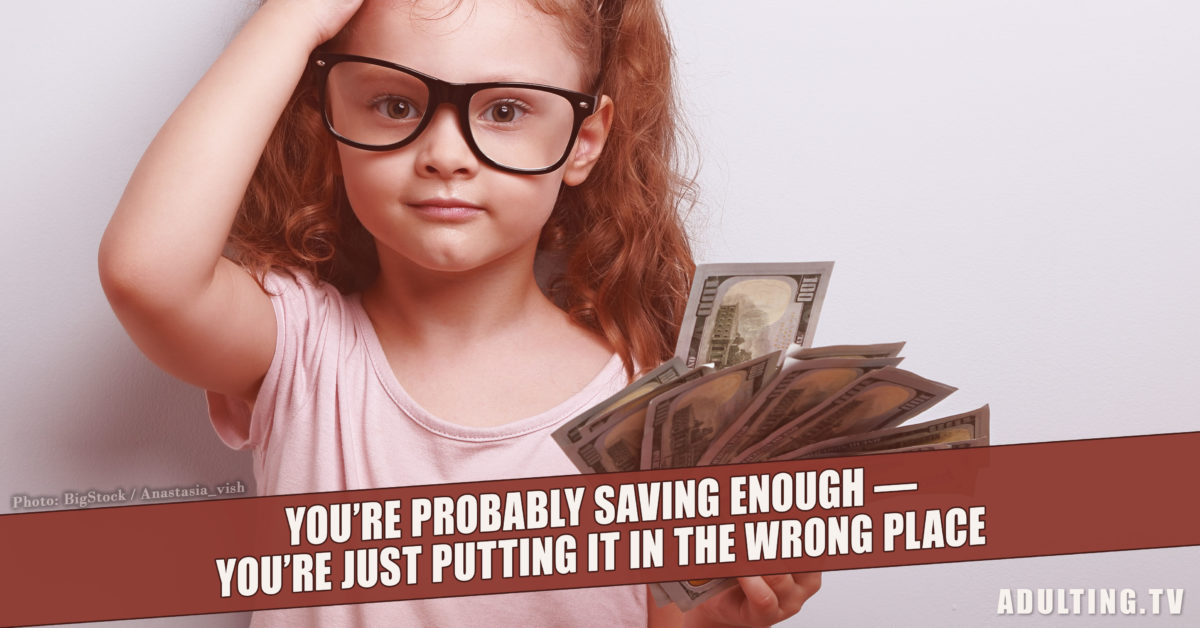
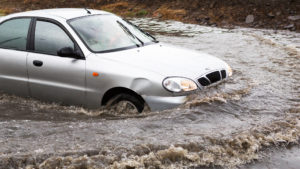
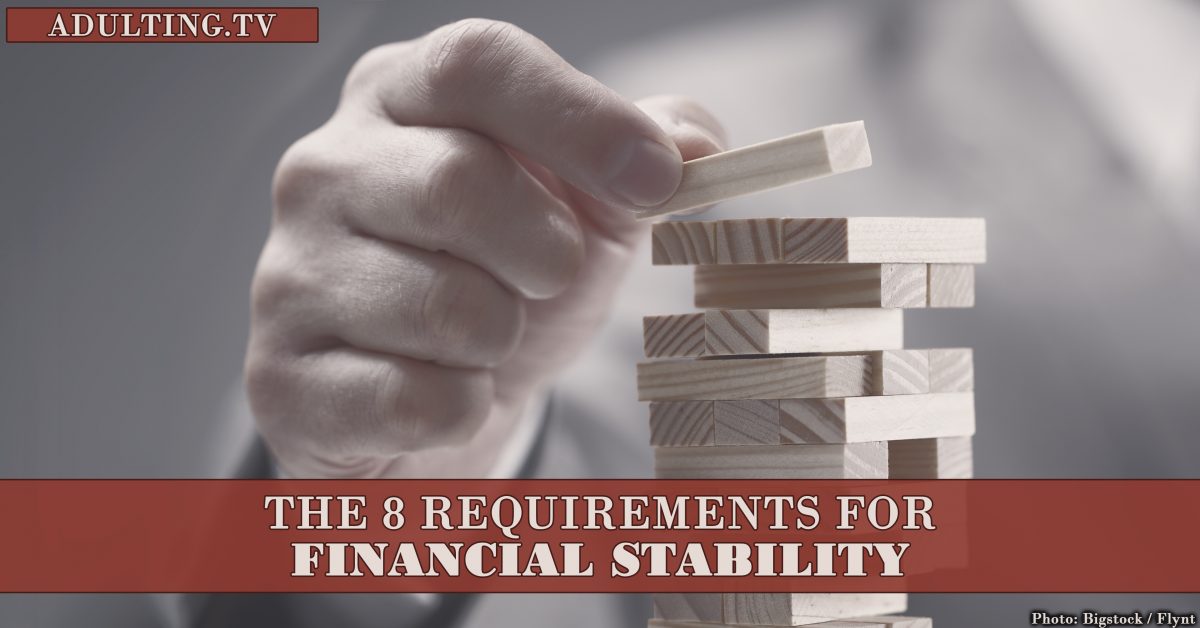
![[A045] Ish Happens: Prepare For the Inevitable Emergency](https://adulting.tv/wp-content/uploads/2016/11/a045-1200x628.jpg)

